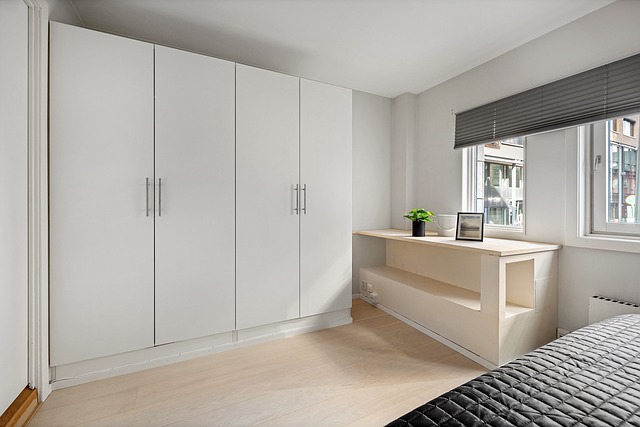Executive Condos (ECs) in Singapore are a housing solution for first-time buyers and existing flatowners, with specific loan eligibility criteria set by the government. Applicants must be at least 21 years old and not own any residential property; single applicants have an income ceiling of SGD$14,000, families up to SGD$20,000, and couples where at least one is a first-timer with a ceiling of SGD$25,000. The loan tenor is capped at 30 years or the applicant's age upon loan approval. A minimum of 5% of the purchase price and land price, up to SGD$30,000 from savings or CPF OA funds, is required. ECs are a key segment in Singapore's property market, particularly for those seeking their first home or an upgrade, with the Central Provident Fund (CPF) playing a crucial role in financing these properties through both initial purchases and monthly mortgage payments, while simultaneously contributing to retirement savings. Prospective buyers must navigate the detailed CPF usage rules, which dictate how much can be used for down payments or mortgage servicing. The Housing & Development Board provides comprehensive guidelines on eligibility and withdrawal limits for CPF in EC transactions. Understanding these regulations is essential for strategically planning home financing that aligns with long-term financial objectives, making Executive Condos a viable and financially sensible option for homeownership in Singapore.
navigating the nuances of Executive Condominium (EC) financing in Singapore can be a prudent step towards home ownership. This comprehensive guide delves into the intricacies of EC financing, offering clarity on eligibility criteria for EC loans, the strategic use of Central Provident Fund (CPF) savings, and the array of mortgage options available to prospective buyers. We’ll chart a clear path through the financing process, from assessing affordability and budget planning to understanding valuation and loan-to-value (LTV) ratios. Additionally, we’ll explore special considerations such as Resale Price Limits (RPL) and Provisional Price Limits (PPL), and provide insights into how EC policies influence financing decisions. For those looking to maximize tax benefits and incentives, or seeking tips for managing mortgages and repayment plans, this article is an invaluable resource. Stay informed about upcoming trends and changes in the EC financing landscape with expert analysis and professional advice tailored for Executive Condo Singapore.
- Understanding the Basics of EC Financing in Singapore
- – Eligibility Criteria for Executive Condominium (EC) Loans
- – The Role of CPF Usage in EC Financing
Understanding the Basics of EC Financing in Singapore

– Eligibility Criteria for Executive Condominium (EC) Loans

Prospective homeowners in Singapore considering an Executive Condominium (EC) as their abode should first understand the eligibility criteria for EC loans. The Singaporean government has set out clear guidelines to ensure that buyers meet the necessary financial requirements to secure an EC loan. To be eligible, applicants must be at least 21 years old and must not own any residential property at the time of application. This includes both existing flatowners and those living in private properties. For singles, the annual income ceiling is SGD$14,000, while for families or households, this increases to SGD$20,000. Couples, where at least one person is a first-timer, enjoy a higher income ceiling of SGD$25,000, highlighting the government’s support for first-time homeowners. The maximum loan tenor is 30 years or to the applicant’s age upon the earliest date between the loan approval and the date the EC is completed, whichever is earlier. Additionally, Singaporean citizens applying for an EC loan must have saved a minimum of 5% of the purchase price and price of the land, up to a maximum of SGD$30,000 from savings, CPF Ordinary Account (OA) funds, or a combination of both. This financial preparation is crucial for a smooth application process for an EC loan in Singapore.
When it comes to financing an Executive Condominium in Singapore, understanding the eligibility criteria for EC loans is paramount. The loan framework is designed to cater to the needs of both first-time buyers and existing flatowners who meet the specified income requirements. Applicants must ensure they fall within the stipulated income ceiling and have the necessary savings or CPF funds to fulfill the minimum loan criteria. The loan tenor is structured to align with the applicant’s age and financial capacity, ensuring a sustainable repayment plan. Prospective EC buyers should thus carefully assess their financial situation against these eligibility benchmarks before embarking on this significant milestone in their lives.
– The Role of CPF Usage in EC Financing

In the realm of Executive Condominiums (ECs) in Singapore, the Central Provident Fund (CPF) plays a significant role for both first-time homeowners and upgraders. The CPF savings are a vital component of retirement funds in Singapore, allowing individuals to use their accumulated funds towards the purchase of an EC. This dual-use feature caters to the aspirations of singles or married couples who wish to own a property while setting aside savings for their golden years. When considering the use of CPF for financing an EC in Singapore, it is imperative to understand the various schemes and limits that apply. For instance, CPF funds can be used to pay for the purchase price, or service the monthly mortgage payments up to specific loan-to-value ratios. This arrangement not only aids in the accumulation of interest on the CPF savings but also facilitates home ownership among Singaporeans at a more affordable rate compared to private properties.
Furthermore, the interaction between EC purchase and CPF usage is governed by stringent guidelines to ensure financial prudence and sustainability within the housing market. The Housing & Development Board (HDB) provides comprehensive information on the eligibility criteria, withdrawal limits, and application procedures for using CPF savings towards an EC. Prospective buyers must navigate these regulations carefully to align their home financing strategies with their long-term financial goals. In doing so, they can leverage their CPF savings effectively while fulfilling their dream of owning an Executive Condo in Singapore, a step towards achieving both housing and retirement adequacy.
Navigating the landscape of housing finance in Singapore, particularly for an Executive Condominium (EC), can be a strategic move for homeowners. This guide elucidates the essential aspects of EC financing, emphasizing the eligibility criteria for EC loans and the role of Central Provident Fund (CPF) savings. Prospective buyers interested in an Executive Condo Singapore should thoroughly understand these financial mechanisms to make informed decisions. By leveraging the tailored financing options available, individuals can tap into the unique benefits of EC ownership, blending the features of a private condominium with the affordability aspects designed for Singaporeans.
